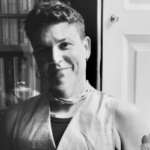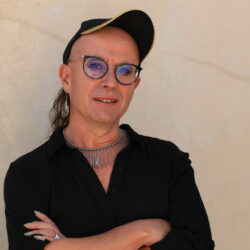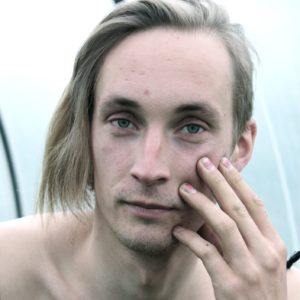A holistic approach to activist training and education.
This Training of Trainers aims to support LGBTQI+ activists who want to grow as activist-trainers or want to step into trainer roles and use holistic methods of education and facilitation for activists and change makers. This course is an introduction to facilitation and training skills.
Ulex Project courses and events use an Integral Activist Training approach. Recognising the interconnected nature of the personal, the interpersonal and the political, our trainings empower integrated transformation in all three spheres. This training of trainers will share what we’ve learnt about this kind of approach over the last 10 years, so you can apply it to your work.
Change is multi-layered. The social field, our organisational cultures, and the individuals within them arise in mutual dependence upon each other. Integral Activist Training supports integrated transformation on all of these levels.
Integral Activist Training is holistic, transformative, participatory and embodies solidarity.
HOLISTIC
A holistic approach is a systems approach. It recognises that the personal is nested within the inter-personal, that the inter-personal is nested within the socio-political, and that the socio-political is nested within the ecological. Each of these dimensions has its own systemic structure and yet also needs to be understood as part of larger systemic wholes. Learning and effective practices for transformation need to attend to each of these layers and to the connections between them.
A holistic approach to learning addresses the whole person – the rational, the feeling, the sensing, and the relational dimension of who we are.
Our approach engages the intellect and helps us to explore the views we hold and how they shape our experience. It encourages clarity of thought and analysis. But unless we also engage the emotional dimension we ignore the key drivers of action and miss opportunities for deep transformation. Emotional literacy is basic to both self-awareness and working well with others. Learning how to channel anger and to develop our capacity for empathy and care are essential to good leadership and effective collaboration. Engagement with feelings is a key skill for building the resilience needed to stay engaged for the long run.
Increasingly, contemporary training methodologies integrate aspects of embodied learning. We carry our habits in the body, holding memories and patterned responses. It is through the body and the senses that we directly engage with the world. Body-centred or somatic approaches awaken the senses, draw on the wisdom of our felt senses and help us integrate our learning in powerful ways.
Lastly, we recognise that who we are is to a large extent relational. Learning about ourselves is learning about how we relate, and learning about how we relate is learning about ourselves. Much of the most transformative learning happens between us. It emerges in the field we create through our interactions – in synergies and moments where the whole reveals itself as more than the sum of its parts. To be effective in social change we need to understand these kinds of relational phenomena, how we participate in them and how they influence us.
TRANSFORMATIVE AND PARTICIPATORY
Integral Activist Training should be empowering and transformative. Our approach draws on the practices of participatory and popular education, to which we add methods of experiential and immersive learning. To paraphrase Paulo Freire: Education is a practice of freedom. It is a means by which we deal critically and creatively with reality. It is a way of discovering how to participate in the transformation of our world. It should lead to action, especially collective action. Learning of this kind helps us to change our lives according to our own ideas.
Our trainings enhance the capacity for self-critical reflection and help us to stay alive to on-going learning through balancing action and reflection. This is most effective when it is pursued in solidarity with others, when we recognise the struggles we share, and gain empowerment through our collective activities. We can discover the transformative power of working with others and recognise the mutually reinforcing relationship between building collective agency and personal empowerment – learning to keep these complementary through the balance of autonomy and cooperation.
EMBODYING SOLIDARITY
Within our groups we are likely to reproduce mechanisms of oppression, albeit unintentionally. Our activism and organising work sits within a global and historical system of interlinking forms of oppression that shape the material, relational, and psychological conditions that influence every one of us.
Learning processes that embody solidarity bring in awareness of differences of experience related to these forms of oppression and support embracing complexity without trying to homogenise different opinions, experiences or cultural differences.
This kind of approach should support the development of skills needed for transversal/intersectional movement building and support exploration of the way we embody our values between us in our work to restore collective agency. It supports development of forms of political organising that can support pluralistic and yet transversal movements which deeply value what we have in common without denying how different we are.
Embodying solidarity means learning how to skillfully navigate power dynamics in groups and learning spaces, as well as aiming at healing division and restoring connection as a key to both personal and collective empowerment. It also seeks to make it accessible for a wide range of people to take part and make their views heard and to draw resilience and power from diversity of experiences, views, identities, and organising cultures.
What are the aims of the course?
The workshop will help participants to develop basic and initial skills in:
This workshop is an introductory training of trainers, focusing on the basic level skills needed to bring in Integral Activist Training approach to facilitation and educational spaces. Attending the course might not mean you will be ready to hold and facilitate learning spaces confidently at the end of it.
Who is it aimed at?
Those involved in socially engaged action addressing ecological, political and social justice issues, who identify as part of the LGBTQI+ community and want to develop capacity as trainers.
We embrace a broad definition of activism, including: Resistance – action preventing further damage to ecosystems and social justice; Renewal – action focused on developing and creating alternatives for healthier societies and communities; and Building Resilience – action supporting increased resilience in communities to weather the uncertain times ahead.
The course will be delivered in accessible, international English.
The team will consist of LGBTQI+ facilitators from different activist backgrounds.
This training is offered in the solidarity economy. You do not need to be able to contribute financially to attend. We are also looking for funding to be able to offer travel bursaries for those who might need it.
In the solidarity economy:
(See details of our approach to radical economics here)
Contact us
to apply

Location:
Ilaj’s background is in grassroots organising, involving them in various strands of social movement work for nearly two decades, mostly in Eastern and Southern Europe. In more recent years, they have turned their attention to broader European movement building as part of the Ulex core team, where they design programmes, coordinate training teams and facilitate on a wide range of training courses. Ilaj is an experienced trainer with a broad range of skills, particularly in holding space for collective exploration of burnout, weathering repression, navigating trauma and cultivating solidarity in social movements. They are passionate about working with body awareness as a radical means of deconstructing internalised systems of oppression. They have been exploring the intersection between transformative somatics and political organising for a number of years.

Location:
Jay (formerly John) Jordan (they/them) is labelled a “Domestic Extremist” by the police, and “a magician of rebellion” by the press. Part-time author, sex worker and full time trouble maker, Jay is a lover of edges, especially between art and activism. They Co-founded Reclaim the street and the clown army, have choreographed carnivalesque riots, written a BBC radio play , facilitated community rituals, always applying joy and creativity to resistance. Education has always been central to their work, they deserted the academy in 2004 to apply pedagogy to social movements. Jay co facilitates the Laboratory of Insurrectionary Imagination based on the ZAD of Notre-Dame-des-Landes, where creative direct action stopped a destructive airport project.

Location:
Jael is part of a grassroots facilitation and training collective for social movements called KommunikationsKollektiv and the German action training network Skills for Action. They have been facilitation workshops on sustainable activism, consensus decision making and anti-oppression. In recent years Jael has started to focus on the somatic part of transformation and social change and is part of a European politicized somatics group. Jael is also a part time organic grower.

Location:
An Maeyens (she/her) is a facilitator and trainer with over two decades of experience in grassroots movements. She specialises in creative, inclusive agenda design and brings deep expertise on group culture, power dynamics, and transformative learning. Starting of in the anti-globalisation movement she has trained thousands in civil disobedience, supported international coalitions, and developed multilingual training programmes and toolkits. Her work spans movements, cultures, and countries, guided by a commitment to care, accessibility, and leaderful organising.

Location:
Ari’s activism began in 2002, at age 16, as a Bosnian refugee in Canada, where they founded and coordinated a group for LGBTIQ high school students and allies. They were a co-founder and leader at kolekTIRV in Croatia and Trans Network Balkan, involved in community organizing, advocacy, program management, team coordination, capacity building, education, media work, campaigns, events, fundraising, etc. In 2024, they joined the Supervisory Board of the Croatian Trade Union Collective of United Precarious Workers and Activists (SKUPA).
Beyond the Balkan region, Ari served as a Board member at Transgender Europe (TGEU), where they held roles as Secretary, Treasurer, and later Co-chair. They have also been a trainer with the Center for Artistic Activism and served on the Advisory Committee and since 2022 as a Community Care Facilitator at FRIDA — The Young Feminist Fund. Since 2024 they are the Operations Manager at Global Philanthropy Project.

Location:
Sergio (all pronouns) was born in Romania and migrated to Germany in the early 2010s. In the past, he was a social worker with homeless people and a social consultant for Eastern European migrants for various organisations. Trained as a filmmaker, he spent two years making a documentary about the ‘civic reawakening’ in Romania and the waves of protest it brought with it. In connection to this, Sergio is currently co-steering the development of an online open-source participative knowledge production platform on activism in Romania. Over the past nine years, Sergiu has offered his skills to various journalists, grassroots collectives and campaigns, mostly working within the labour rights, climate justice, international solidarity and anti-authoritarian movements in Germany and Romania. Nonetheless, his biggest focus since 2020 has been his work as an organiser with the anarcho-syndicalist Free Workers Union, where he focuses mostly on organising Romanian migrant workers on construction sites, in factories and in the agricultural field.

Location:
Linzy Na Nakorn is a movement director, politicised somatics practitioner, community organiser and facilitator. For the past decade she has been facilitating movement, body work and creating theatre, dance and participatory performance that advocates for and organises with communities in pursuit of housing, disability and racial justice. Her movement practice focuses on trauma-informed approaches to building resilience, capacity and joy via way of the body for personal, interpersonal and community sustainability. Linzy was a Co-Director of The Big Ride for Palestine in partnership with The Gaza Sunbirds, Native Woman Ride and Middle East Children’s Alliance; using cycling as a tool for mobilising active solidarity and in support of campaigning for the rights and self-determination of the Palestinian people. Linzy is part of a UK network of activists and artists advocating for Radical Care – supporting organisations, researchers and institutions to work towards system change in societal approaches to labour, leadership and access.

Location:
Jeroen (he/him pronouns) has been involved in grassroots social movements for more than two decades now, starting back when he was fifteen. Throughout the years the fights for “climate justice” and “migrant justice” have been consistently on top of the list of struggles that make his heart beat faster. A key transformative moment for Jeroen was reading Paulo Freire’s Pedagogy of the Oppressed. Freire’s revolutionary pedagogy gave him a language to support the creation of emancipatory learning environments, rooted in a desire for collective liberation. Jeroen has also been exploring in depth Boal’s Theatre of the Oppressed and Joanna Macy’s The Work That Reconnects among other methodologies to build his trainer’s toolkit. Inspired by the liberatory possibilities of these traditions, he started an organization with a friend, LABO vzw, based in Belgium, where he has worked as a trainer and campaigner between 2013 and 2023.

Location:
Ella brings more than 10 years’ external experience working with not for profit and community based organisations across diverse themes including: advocacy for migrant communities; local community engagement in national policy making; and structural relationships between poverty and disenfranchisement, and education and poverty. Immersed in critical theory in her early 20s she brings a holistic and questioning approach, and is passionate about systemic solutions that centre relationship and interconnection between ecology and society. A long standing member of the collective, Ella has been part of the core team since the inception of the Ulex Project. Her work bridges facilitation, developing project partnerships, governance, strategy, operations, and project and programme evaluation. She has developed and overseen more than 70 partnerships with a range of different actors across European social movements.
Ulex: Latin (argelaga Catalan, gorse English) noun:
1. A thorny-evergreen flowering shrub, with a high capacity for regeneration and resilience. Its seedpods open in contact with fire and it reshoots from charred stumps. A successionary plant that grows well under challenging conditions. It improves soil fertility through nitrogen fixing, preparing the way for renewed biodiversity.
2. A traditional choice for igniting fires. Burns hot and bright.
3. A networked project adding nutrition and fertility to European social movements through training and capacity building. It kindles the realisation of social justice, ecological intelligence, and cognitive vitality.